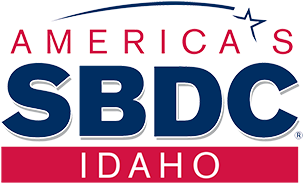Searching in Financing/Capital [clear]
Financing/Capital
How can I find out my credit score?
Always get and review your credit reports, which you can do at no cost to you at AnnualCreditReport.com. Your credit card company may also provide the score.
What do I need to get a business loan?
In order to apply for a loan, you will need at least three years worth of tax records for the business or personal tax records if you are not yet in operation; a personal financial statement, good credit and copies of any outstanding contracts (for example, your lease). The lender will usually want to see a thorough business plan that includes cash flow projections, a market analysis and an operational plan. Your SBDC consultant can help.
Does the SBDC offer loans?
No, the SBDC does not offer loans. Our services are technical and educational in nature. SBDC consultants will assist in developing your business plan, calculating financial projections, comparing loans and preparing you to select and meet with a lender.
What alternatives are there for financing a business?
Committing your own funds is often the first step in financing. It is certainly the best indicator of how serious you are about your business. Risking your own money gives confidence for others to invest in your business. Seeking a loan from family and friends is another option. Think very carefully before you take on partners or investors in your business. Talk with an attorney or an SBDC consultant before agreeing to a partnership or outside investor and be certain to have your attorney create a legal partnership agreement or similar document for your protection.
What financing is available when your credit rating is bad or you have a bankruptcy?
Unfortunately, traditional financing options are very limited and often nonexistent. At best an individual may try to work with a micro-lender or economic development organization, though poor credit will still be an issue. Other alternative financing options to explore include asking friends and family members to invest. If necessary, you may need to work on improving your credit history and put some time between the problem and a new credit application. This will mean waiting to start your business, but it may be the best alternative. Be very careful about scams and stay away from predatory lenders who will want access to your bank accounts and charge an exorbitant interest rate.
How should I prepare to meet with a business banker?
First, set an appointment. Then write down why you need the loan and how much you need to borrow. Bring a copy of your business plan, including financial statements and projections. If you do not have three years of history with the business, are not making a profit, or don’t have substantial security to offer, be prepared to be turned down. Your SBDC consultant may be able to help you prepare for the appointment. If you are turned down, an alternative lender may need to be considered.
What are the risks of borrowing from a lender I located on the web?
There are many risks. Please see an SBDC consultant before proceeding. We have run across more unscrupulous lenders on the internet than we have good ones. As a business owner, you may not have normal consumer protections that you would with personal loans. High rates, fees, access to your bank account, high pressure tactics, the inability to pay them off, and other problems abound.
Since I’ve never had any trouble obtaining a home mortgage, credit card, or auto loan, shouldn’t I be able to easily obtain a loan for my small business?
Obtaining a small business loan is not the same as getting a personal loan. It is much more challenging to obtain a loan for a small business than a loan to purchase a home or car. You should not assume that just because you easily obtained a personal loan that you will be able to obtain a small business loan. Business loans typically take more time, require more documentation, require collateral and are more highly scrutinized.
What is an SBA loan and how do I get one?
An SBA loan is a loan provided by a bank or other lender that has been guaranteed (backed) by the U.S. Small Business Administration. (The SBA does not make loans.) The guarantee assures the lender that it will be repaid a portion of the money it loans even if the borrower fails to repay the loan. As a business owner, you will make a request to a lender (usually your local bank) for funds needed for your business. The lender will evaluate your request and decide whether it can make the loan to you on its own. If a lender feels the request has merit but cannot make the loan without additional support, then the lender can request an SBA guarantee. SBA considers issues such as collateral, credit, equity, and loan repayment ability when making a determination on a loan. SBA does not provide grants to small businesses. With the exception of disaster loans, SBA does not provide direct loans. Your SBDC consultant can provide more information on SBA loans.
How much money can I borrow? Is it possible to get 100% financing for my business?
How much you can borrow is a decision that rests with your lender. Some criteria your lender will consider are: how much money your business plan says the project will require, how much collateral or personal investment you are willing to put into the business, and your personal and business credit history. As you develop a business plan, you must gather the appropriate financial data to make informed projections regarding startup costs (or expansion costs for existing businesses). These projections should show you how much you need to borrow and help you determine your ability to repay the debt.
You are unlikely to obtain 100% financing for your project from a lender. Lenders expect the borrower to share some of the risk and typically require an individual to cover at least 20% of the financing cost to start a business. Some banks will require an even larger owner equity injection depending on the industry or type of business. The equity you have or will have in the business will also be a factor.





